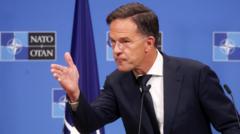Palestinian Ambassador to Egypt, Diab Allouh, has called for immediate international action to end the ongoing violence in Palestine and bring attention to the broader implications for global peace and security.
Speaking at a training session organised by the Union of African Journalists, in collaboration with the Supreme Council for Media Regulation and the Training and Media Studies Center, Mr. Allouh highlighted the deteriorating situation in Gaza, urging a permanent ceasefire and reaffirming the Palestinian Authority’s commitment to the two-state solution.
Ambassador Allouh emphasised the deep historical ties between Palestine and Africa, describing the shared struggle against colonialism and occupation. Drawing parallels between Africa’s battle for independence and Palestine’s long-standing fight for sovereignty, the Palestinian Ambassador to Egypt reminded young journalists of the central role African nations have played in supporting Palestine’s cause, particularly through recognition of Palestinian statehood.
A Call for UN Action
The ambassador’s remarks come amidst the ongoing devastation in Gaza, where over 90% of the territory has been destroyed since the escalation of violence in October 2023. With daily casualties and widespread displacement, Mr. Allouh outlined the dire need for the United Nations and other international bodies to step in to halt the ongoing violence and secure a future for Palestinians based on internationally recognised laws.
“We are calling for an immediate ceasefire. The genocide and atrocities perpetrated against the Palestinian people must end now. The world must act to prevent further loss of life and destruction,” the Palestinian diplomat stressed.
He further indicated that the humanitarian crisis in Gaza, exacerbated by blockades and Israeli military operations, requires urgent global intervention.
The ambassador called for a concerted effort to support Egyptian and Qatari mediation initiatives, which aim to bring about a ceasefire. He also highlighted the need for continued humanitarian aid to Gaza, where millions of Palestinians are facing extreme shortages of food, water, and medical supplies.
Palestinian Vision for Peace
Mr. Allouh reaffirmed the Palestinian Authority’s commitment to a two-state solution, a vision that includes a sovereign Palestinian state with Jerusalem as its capital. He stressed the importance of peace negotiations, citing previous agreements like the Oslo Accords and the recognition of Palestinian rights by over 150 countries. However, he lamented the challenges posed by Israel’s refusal to engage in meaningful dialogue and its ongoing settlement expansion in the West Bank and East Jerusalem.
“We seek to establish a Palestinian state on just 22% of historic Palestine,” Allouh declared, underscoring the political reality that Palestinians are fighting for sovereignty over a fraction of their ancestral land. “Israel’s refusal to acknowledge our sovereignty and engage in negotiations continues to undermine the peace process.”
Despite the challenges, the Palestinian ambassador expressed optimism about future peace prospects, pointing to international efforts, including those spearheaded by Egypt, Jordan, and other Arab nations, to support Palestinian self-determination and end the occupation.
Reconciliation and Unity Among Palestinians
On the issue of internal Palestinian politics, Allouh addressed the complex situation in Gaza, which has been governed by Hamas since 2007. He emphasized that while Hamas remains a key player in Palestinian politics, it is essential for the various Palestinian factions to work together for the sake of national unity.
He explained that, in partnership with Egypt, the Palestinian Authority is working towards a national dialogue aimed at achieving a unified Palestinian governance structure. “We are engaged in discussions with all political factions, including Hamas, to ensure the implementation of a technocratic government that can govern Gaza during the initial stages of reconstruction,” Allouh explained.
The ambassador stressed that the military approach has failed, and the key to achieving peace and stability in Gaza lies in negotiations, not further bloodshed. “The release of hostages, the cessation of violence, and the rebuilding of Gaza can only be achieved through dialogue and cooperation, not through military force,” he said.
Solidarity with Africa and the Global Community
In his closing remarks, Allouh expressed gratitude for the support Palestine has received from African countries and called on African journalists to use their platforms to raise awareness about the Palestinian cause. “Journalism is a powerful tool that can influence public opinion and political decisions,” he said. “We urge African journalists to continue supporting Palestine’s political and diplomatic efforts, especially within international organizations like the United Nations.”
DISCLAIMER: The Views, Comments, Opinions, Contributions and Statements made by Readers and Contributors on this platform do not necessarily represent the views or policy of Multimedia Group Limited.




